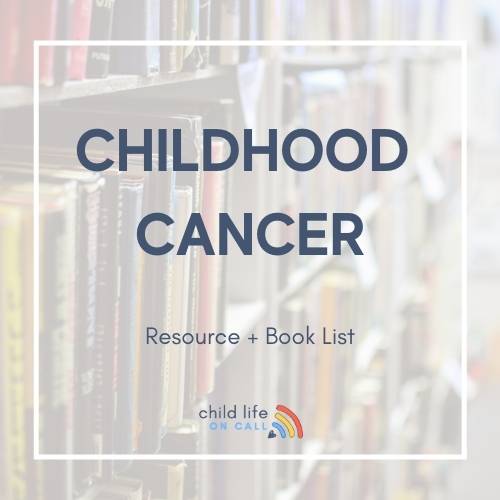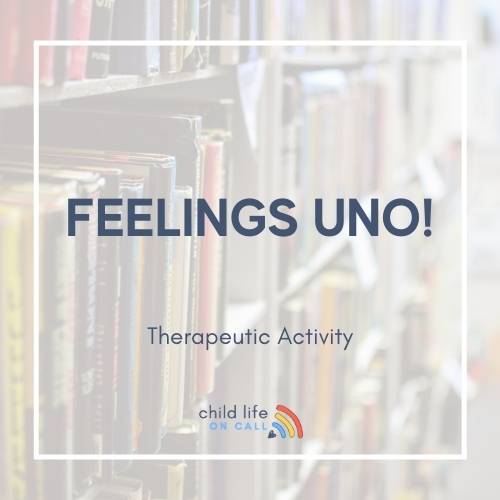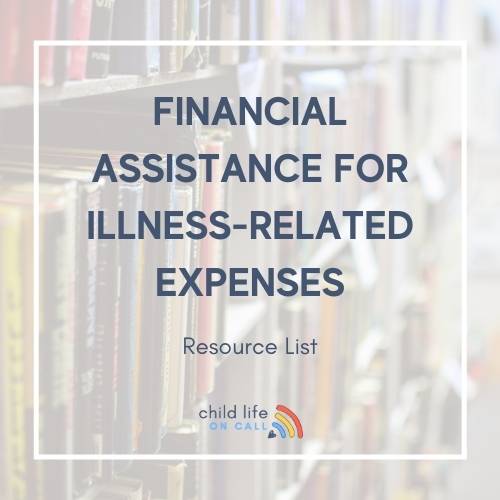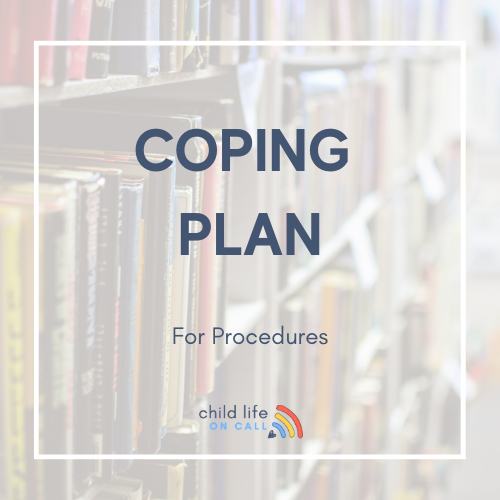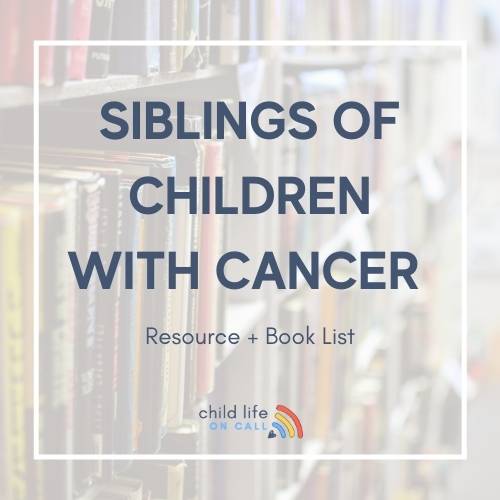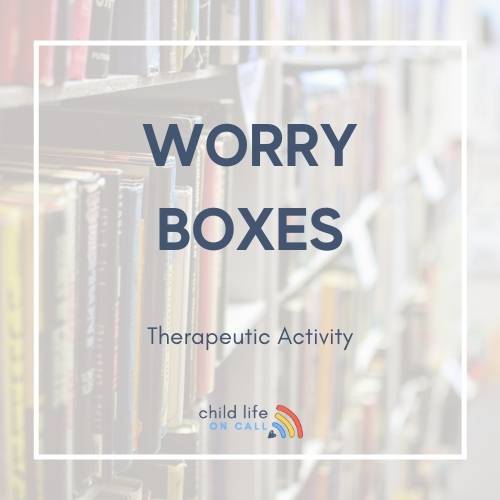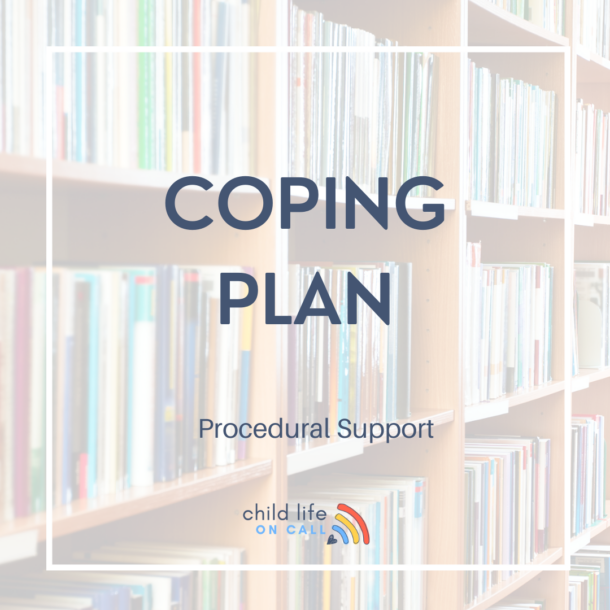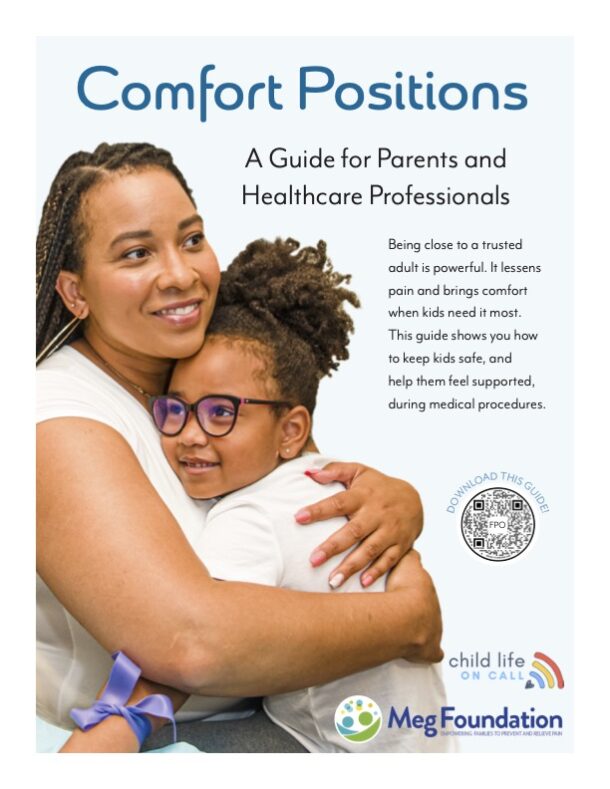As a child life specialist, I’ve seen the impact that pain can have on kids. It’s not just physical – it can affect them emotionally, socially, and even cognitively. In fact, research tells us that uncontrolled pain can lead to long-term effects like stress, anxiety, and depression, as well as changes in brain function and even delayed recovery (which really matters for hospitals and impacts families).
Dealing with pain can be incredibly difficult for anyone, but it can be particularly challenging for children. When kids are in pain, they may not be able to articulate what they’re feeling or understand what’s happening to them. That’s where child life specialists come in. As trained professionals specializing in helping children and families navigate the complex world of healthcare, we play an essential role in assessing kids in pain and determining what they need to feel better.
How do child life specialists assess kids in pain?
One of the key ways that child life specialists help kids in pain is by conducting a thorough assessment. This assessment involves a combination of observation, conversation, and other techniques to help the CCLS understand what the child is experiencing.
While the CCLS may pay attention to how a patient reports pain to the care team during a medical assessment through questions such as where it hurts, how severe it is, and what type of pain it is (e.g., sharp, dull, throbbing), we actually consider more than that. Child life specialists observe how kids interact with the care team, how they report pain, make note of the age and developmental stage of the child, and look at how the child’s previous experiences and family support may impact their pain level.
Clinical Scenario: Assessing Kids with Belly Pain
Picture this real scenario I found myself in: I’m in the emergency room, and I witness several kids coming in with excruciating belly pain. The reasons for such agony could span from gas to anxiety, appendicitis to ovarian cysts, and so much more. As the doctor and nurse work on assessing and treating the medical issue, my role is to aid the child in describing their pain with clarity to the team. Being the solace in their distress, it was also my job to ensure that their immediate familial and safety concerns are taken care of by building trust between the family and care team.
As a child life specialist, my role is to help children cope with the pain they experience while in the hospital. When a child is in pain, it can be difficult for them to communicate what they are feeling to the care team.
Child life plays a crucial role in the medical field, where we guide little ones to articulate their sufferings fluently and more precisely. This enables the medical team to plan the right treatment and care for them without error.
But that’s not it – my job as a child life specialist extends beyond that. My primary focus is to ensure that our young patients’ needs are met and that they feel cared for and safe.
To achieve this, I establish a sense of trust and reliability between the family and the medical team. I build close relationships with the children and their families to better understand their needs and provide appropriate support throughout their stay. This might even be accomplished in just 30 seconds if necessary.
Understand the Child’s Needs
As a child life specialist, we determine the necessary interventions for the child’s unique needs once we complete our assessment. We work closely with their healthcare team and provide the best possible care at the right time, ranging from providing a comforting presence to incorporating relaxation techniques, playing games, listening to music, or other distraction techniques.
Advocate for the Child and Family
Child life specialists play a critical role in advocating for the needs of children in pain. We work closely with healthcare providers and other professionals to ensure effective pain management and the provision of the right care and support. Additionally, we assist parents and caregivers in understanding their child’s experience and how best to support them. We understand the challenges of having a child in pain, and we support the entire family through the process.
Wrapping it up
Child life specialists have a profound impact on improving the wellbeing of children who are in pain. By carefully assessing their experience, they understand how best to alleviate distress and help them feel better. Advocating tirelessly for their needs, they work closely with healthcare providers, ensuring that they receive the best possible care.
In the often-challenging world of healthcare, they provide a compassionate and supportive presence, helping children and families navigate difficult situations with greater ease and confidence. In summary, child life specialists are a critical component of improving the overall experience of children and families in healthcare.

